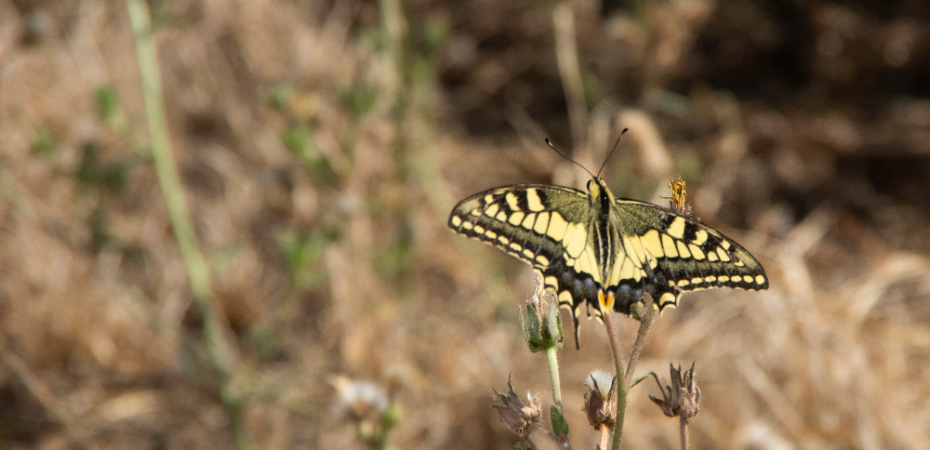
🎗️October is ADHD Awareness Month. In this extra post, Glen invites you to learn a little more about this specific form of neurodiversity and to appreciate how we can nurture the wellbeing of members of our learning communities who are living with this form of neurodivergence.
ADHD stands for attention-deficit / hyperactivity disorder and is a type of neurodivergence that affects both children and adults worldwide.
ADHD Awareness Month↗️ offers us an opportunity to reflect on our evolving understanding of ADHD, how it affects people, how our classroom and workplace cultures can evolve to be more inclusive and how we can celebrate neurodiversity in general. It serves as a time to celebrate the differences found in neurodiversity while also advocating for new perspectives, more inclusive cultures and better support systems.
Behind the label
ADHD is a type of neurodiversity that affects every aspect of life; many people do not realise they have it until they are much older. Later life diagnosis carries with it a number of challenges as discussed by Dr Zoë Ayres in a recent blog↗️ for Voices of Academia. The following quote from Zoë’s blog speaks to some of these challenges:
“I have seen my generation (women in their 30s) being referred to as “The Lost Girls↗️”. And we are – lost, left to muddle through, let down… [in our society] the stance is so often “if you are functioning you are fine”, even if you are screaming on the inside…. our value is measured so heavily in our contribution, that as long as we are contributing no-one stops and asks the question: Are you actually fine?”
Sincerely asking “are you actually fine?” involves moving beyond labels and seeing the individual. ADHD is thought to be a lifelong condition that is often stereotypically associated with hyperactivity, lack of focus and ‘disruptive behaviour’ particularly in school. Such stereotypes fail to recognise the diversity behind any label and that every individual is unique and multi-facetted. The label is problematic in another sense because, like so many labels, it is simplistic and lacking in trauma awareness, failing to appreciate that such behaviour may be, to quote Gabor Maté, “a normal response to abnormal circumstances”.
The potential underlying origins of the condition are explored in Nick Haslam’s recent article↗️ in The Conversation, which recognises the dappled complexity of mental health and the interplay of factors that can co-constitute any interaction between individuals and their environment. Haslam’s article recognises the need for us to ask searching questions about the impact of our cultures on community members and the dynamic relationship between individuals and their environment. A 2019 review of the relationships that students with ADHD have with their teachers provides a powerful example of this complexity, reporting that
“teachers’ rejection of ADHD students poses a risk factor for not only school failure, but also peer exclusion and rejection, leading to low self-esteem and loneliness” (Ewe, 2019, p.136↗️).
Inclusivity as an aspiration
Seeking to evolve our cultures so that we are more inclusive of neurodiversity, involves celebrating diversity. We arguably need to become better at recognising that people with ADHD can be creative problem solvers, capable of deep focus on tasks that interest them and who bring innovation to their work. This is possible when we emphasise asset framing over deficit framing. We also need to recognise that what happens in the staffroom is not independent of what happens in the classroom and that we must therefore seek to foster more inclusive working environments and workplace cultures.
The Inclusive Employers website↗️ is taking part in ADHD awareness month. Here are a few of their proposals for how organisations can commemorate ADHD Awareness Month at work:
- Organising or attending ADHD training and webinars
- Learning from neurodivergent people
- Exploring ADHD resources to provide the best possible support
- Considering a strengths-based approach to developing your staff: what do they love doing? What are they great at? How can you build that into their role? This will benefit all your staff, not just those with ADHD
- Dispel some myths↗️ about ADHD
- Show support by wearing the ADHD Awareness Month ribbon.
Please do visit their web pages if you would like to find out more about how we can evolve our workplace cultures.
We hope you will join us in marking ADHD awareness month, both in 2023 and in the years ahead.
 Glen Cousquer
Glen Cousquer
Glen Cousquer is a recipient of the 2022 RCVS Compassion Award↗️ for his work on embedding compassion into teaching and learning and campus culture. He is a recipient of the 2021 EUSA Outstanding Commitment to Social Justice and Sustainability Award↗️ and the 2020 Social Responsibility and Sustainability Changemaker Awards↗️ in recognition of his work on sustainability across the University, including the embedding of deep listening and sustainability into postgraduate training courses for healthcare professionals.
Glen’s research into the health and welfare of pack animals on expedition and across the global mountain tourism industry led to the development of new industry standards and the development of multispecies awareness-based Action Research methodologies to help deliver emergent futures. This work has informed the development of dialogical approaches to establishing communities of practice and inquiry, change theory, and practice for sustainability, as well as more recent work on ecological pilgrimage that has led to the publication of a new guidebook on the Way of St Cuthbert↗️. Since February 2018, he has been lecturing on and coordinating the MSc and MVetSci programmes in One Health and Conservation Medicine at The University of Edinburgh.


